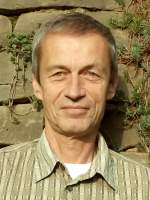BSF in Cambodia
3459 views
- Arther1957
-

- I'm studying water processing waste management I'm a retired
Less- Posts: 5
- Likes received: 1
I have dealt with and know people who recyclebiological material for most of the last 60 years. Black Soldier Flies are not well-suited
to the consumption of feces, so your project in Durban was doomed from its conception. Unfortunately, most attempts to use Black Soldier Flies in this manner will probably fail. I hope the project in Cambodia is a good fortune, but the environment there does not promote the adaptation of
BFS.
to the consumption of feces, so your project in Durban was doomed from its conception. Unfortunately, most attempts to use Black Soldier Flies in this manner will probably fail. I hope the project in Cambodia is a good fortune, but the environment there does not promote the adaptation of
BFS.
The following user(s) like this post: Dave
Please Log in to join the conversation.
You need to login to reply
Thanks for the mail, Heiner
It sounds like that BSF farm in Cambodia has a lot of the right conditions for success.
Please post an update after you have visited there.
Dave
It sounds like that BSF farm in Cambodia has a lot of the right conditions for success.
Please post an update after you have visited there.
Dave
Regards
Dave
Dave
Please Log in to join the conversation.
You need to login to reply- Heiner
-
 Topic Author
Topic Author- I am a retired organic farmer and interested in nutrient cycles. As an volunteer I now travel mainly to poor countries and together with locals I would like to find new ways of sustainable agriculture. This is beyond the regulations of IFOAM.
Less- Posts: 80
- Karma: 1
- Likes received: 67
Dear Dave, dear Paresh,
thanks for your valuable input and honest words. As a farmer who never ran a system like that I am just very interested in nutrient circles. But as you wrote, you always have to look for the given environment to find the right solution. Dave you asked if we would know any working and economic successful bsf plants, without any grants from outside. No I don't. But here in Germany it is absolut "normal" that every start-up gets grants in the beginning. And big companies as well when they claim they have a "bright idea" and can't unfortunatly finance the idea themself. Of course after the shareholders got their 5 %........
This little German companý startet a few years ago and is still on the market: Landingpage | madebymade . I can't judge how successful they are. But have a look yourself and ask if you have any questions. My contact years back was easy and friendly.
I became a bit excited when I read the article in the Cambodian paper. But that is a very personal thing. 3 years ago, I fell in love with Cambodia and its people, and my next trip starts in January. I met so many young and optimistic people... a big difference to ever moaning and suffering Germans. This time I am not accompanied by my wife so I will have plenty of time to cruise around. If this plant is not too far away from my basis, I will try to have a look myself. He is not into faecal slugde but using leftovers from the wet market. So the energy for the BSF is given. And in most parts of Cambodia temperature is warm to hot all year round. In the wet season, there is a surplus of organic material everywhere. But the wet markets are running all year round and give him feed for his bsf. Moreover, waste management is becoming a topic in Cambodia, and he might be part of the solutions.
Cheers and have a nice day,
Heiner
thanks for your valuable input and honest words. As a farmer who never ran a system like that I am just very interested in nutrient circles. But as you wrote, you always have to look for the given environment to find the right solution. Dave you asked if we would know any working and economic successful bsf plants, without any grants from outside. No I don't. But here in Germany it is absolut "normal" that every start-up gets grants in the beginning. And big companies as well when they claim they have a "bright idea" and can't unfortunatly finance the idea themself. Of course after the shareholders got their 5 %........
This little German companý startet a few years ago and is still on the market: Landingpage | madebymade . I can't judge how successful they are. But have a look yourself and ask if you have any questions. My contact years back was easy and friendly.
I became a bit excited when I read the article in the Cambodian paper. But that is a very personal thing. 3 years ago, I fell in love with Cambodia and its people, and my next trip starts in January. I met so many young and optimistic people... a big difference to ever moaning and suffering Germans. This time I am not accompanied by my wife so I will have plenty of time to cruise around. If this plant is not too far away from my basis, I will try to have a look myself. He is not into faecal slugde but using leftovers from the wet market. So the energy for the BSF is given. And in most parts of Cambodia temperature is warm to hot all year round. In the wet season, there is a surplus of organic material everywhere. But the wet markets are running all year round and give him feed for his bsf. Moreover, waste management is becoming a topic in Cambodia, and he might be part of the solutions.
Cheers and have a nice day,
Heiner
Heiner, the old farmer.....
The following user(s) like this post: Dave, paresh
Please Log in to join the conversation.
You need to login to reply
I was involved in the development of a BSF pilot project in Durban, South Africa. The plan was for the larvae to feed on waste sourced from double-vault urine diversion toilets. It did not prove viable in Durban and the pilot was eventually closed. The challenges encountered included:
I would be interested to know if any organisations have managed to run BSF successfully, i.e. commercially, i.e. beyond research scale with external funding. I know SANERGY have built a big plant in Kenya - perhaps they have cracked it there?
Regards
Dave
- Dealing with trash in the feed stock is a labour intensive and time consuming process
- Waste derived from on-site toilets does not have a lot of energy value left. It needs to be mixed with another waste source, e.g. food waste. That has cost implications.
- We were spreading the sludge too thick, and after the 14 days or so that the larvae take to mature, the % reduction in the sludge volume was not significant. I believe one needs to spread the sludge in a very thin layer, like 10 mm. That requires a lot of space, which has capital implications, as the feeding (grow-out) beds need to well covered and well drained.
- Durban is on the coast and has a temperate climate, by South African standards. Even so, one of the conclusions at the end of the project was that a lot of money would have to be spent on climate control to keep the larvae productivity high. Perhaps this is not a problem in tropical climates.
- Separation of the larvae from the sludge was not easy. The mechanical equipment that was designed for our pilot was expensive and it did not work nearly as well as planned.
I would be interested to know if any organisations have managed to run BSF successfully, i.e. commercially, i.e. beyond research scale with external funding. I know SANERGY have built a big plant in Kenya - perhaps they have cracked it there?
Regards
Dave
Regards
Dave
Dave
The following user(s) like this post: paresh, Heiner
Please Log in to join the conversation.
You need to login to reply- paresh
-

- Moderator
- Budding WASH researcher, especially interested in governance, public policy, finance, politics and social justice. Architect, Urban & Regional planner by training, Ex. C-WAS, India.I am a patient person :)
Less- Posts: 383
- Karma: 7
- Likes received: 143
Thanks Heiner for sharing this very informative and insightful piece.
Sharing a few key points to piq interest.
The article overall seems very biased though - treats BSF as a silver bullet. Not sure if it is so. It would be great if people with related experience could share the challenges involved (if any). Also how does BSF compare with other technologies/products like biochar?
Thanks
paresh
Sharing a few key points to piq interest.
- The company processes wet market waste and food by-products, turning them into high-protein and high-fat feed ingredients. It produces the follwoing four products
- BSF Larvae - A rich source of protein and fat used as animal feed, particularly for poultry, pigs, and aquaculture.
- BSF Meal (Ground Larvae): Protein-rich powder used as an alternative to traditional feed ingredients like soybean meal and fishmeal
- BSF Oil (Pressed Larvae): A fat-rich feed ingredient for livestock and aquaculture. Also explored as a key component in producing sustainable aviation fuel (SAF)
- BSF Frass (Larvae Excrement): A nutrient-rich biofertilizer that can improve soil health, enhance plant growth, and stimulate plant immunity to pests.
- The company is piloting a decentralised production model where local farmers can rear BSF larvae on-site using agricultural waste. The larvae can be collected and processed at a centralised facility.
The article overall seems very biased though - treats BSF as a silver bullet. Not sure if it is so. It would be great if people with related experience could share the challenges involved (if any). Also how does BSF compare with other technologies/products like biochar?
Thanks
paresh
Paresh Chhajed-Picha
Moderator, SuSanA forum
Project Manager at ADCPS
Indian Institute of Technology - Bombay, India
Moderator, SuSanA forum
Project Manager at ADCPS
Indian Institute of Technology - Bombay, India
The following user(s) like this post: Heiner
Please Log in to join the conversation.
You need to login to reply- Heiner
-
 Topic Author
Topic Author- I am a retired organic farmer and interested in nutrient cycles. As an volunteer I now travel mainly to poor countries and together with locals I would like to find new ways of sustainable agriculture. This is beyond the regulations of IFOAM.
Less- Posts: 80
- Karma: 1
- Likes received: 67
First time I read an article about BSF in Cambodia news. Perhaps it is of interest for somebody here. Cheers!
Waste to feed: Local startup tackles carbon emissions and boosts food security | Phnom Penh Post
Heiner, the old farmer.....
The following user(s) like this post: cecile, paresh
Please Log in to join the conversation.
You need to login to reply
Share this thread:
Recently active users. Who else has been active?
Time to create page: 0.164 seconds







